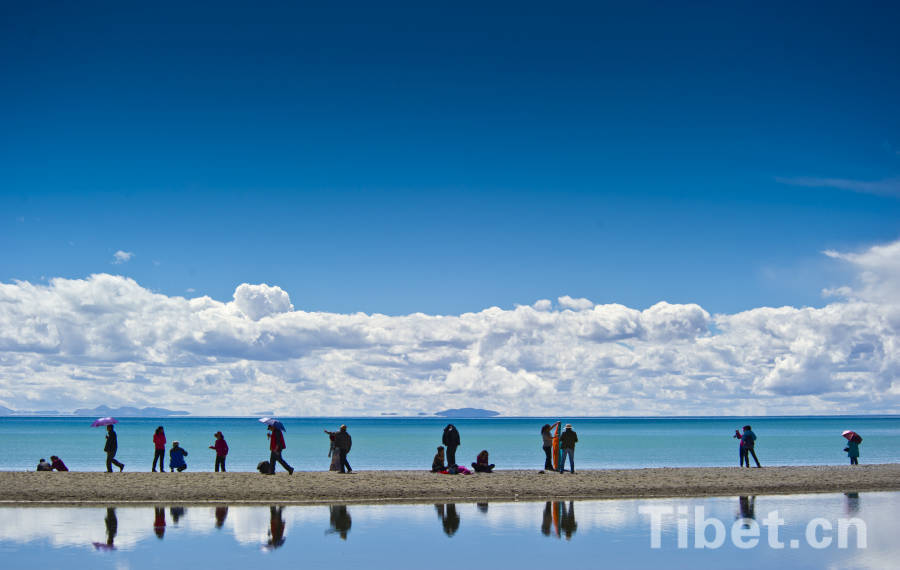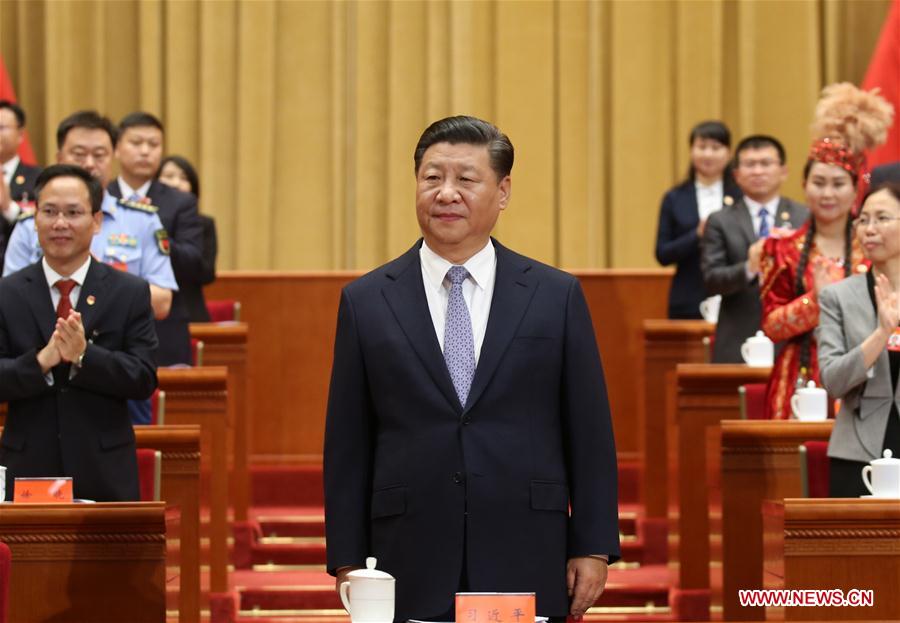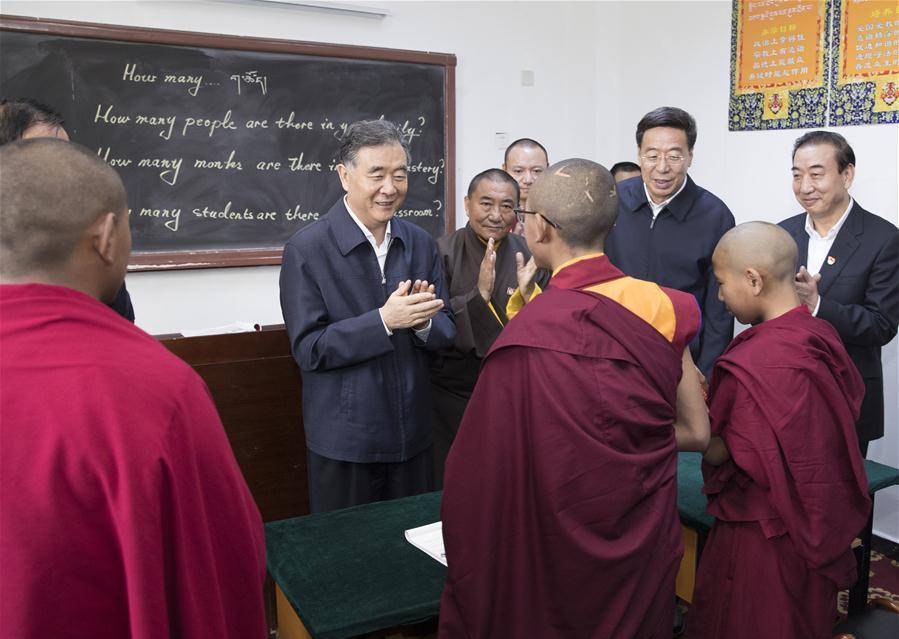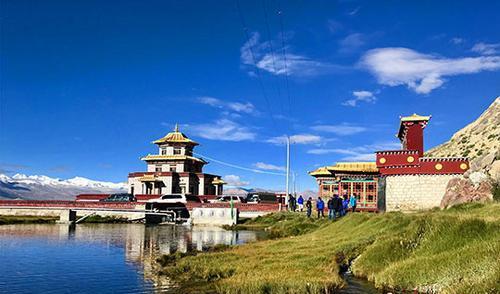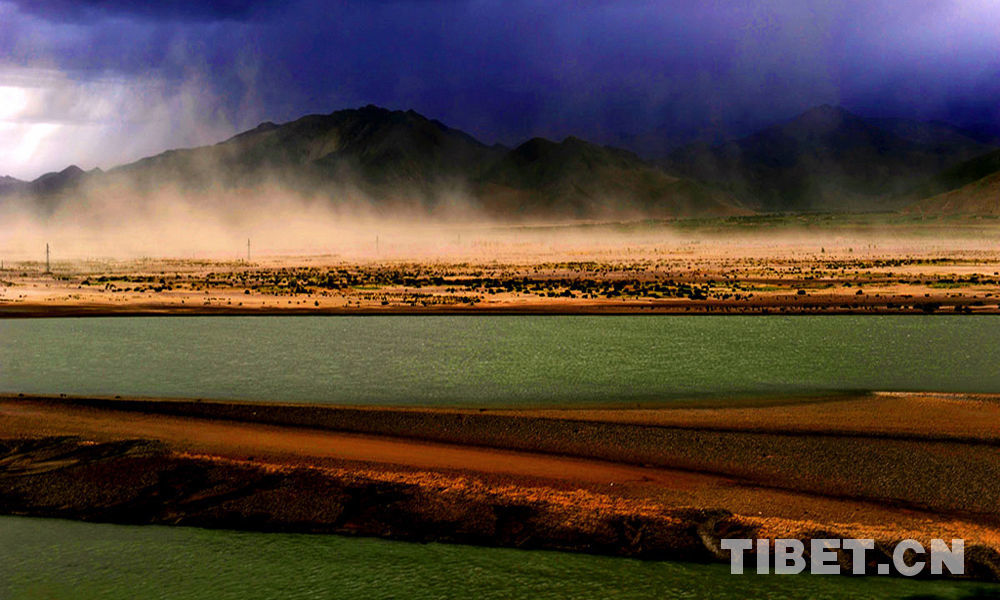China slams US leaders’ claims
China'sMinistry of Foreign Affairson Wednesday slammed statements made by US President Donald Trump and Vice President Mike Pence which claim that the US "rebuilt" China over the last 25 years. The Foreign Ministry stressed that China has always relied on itself.
Analysts said the statements showed the US leaders' arrogance and inferiority.
The statements, which credited the US for China's development achievements, are not only completely inconsistent with the facts, but also logically untenable, Foreign Ministry spokesperson Lu Kang said at Wednesday's routine press conference.
"Any country fundamentally relies on itself to develop. China's tremendous development achievements are relying on the correct leadership of the Communist Party of China [CPC] and the path of socialism with Chinese characteristics," and the unswerving reform and opening-up, as well as the hard work and wisdom of all Chinese people, Lu noted.
"China is a huge country with a population of nearly 1.4 billion, so its development cannot count on the charity and gifts of others. I am afraid that no country has the strength to have 'rebuilt' China," Lu said.
Pence said in a speech on October 4 that China's actions have contributed to a trade deficit with the US of $375 billion last year - nearly half of the US' global trade deficit.
As Trump said, "In his words, 'We rebuilt China' over the last 25 years," Pence noted, according to the White House website.
Chinese analysts said US leaders' thinking showed they are wavering between ignorance and inferiority.
Diao Daming, an American studies expert and associate professor at Renmin University of China, told the Global Times that "the redeemer thinking" of the US make these US politicians believe that the US is dominating everything around the world, and all development relies on the US. "At the same time, these US politicians realize their country is not the only or the biggest winner in globalization anymore. And as many rising economies and developing countries grow, these people feel the US is losing and their mood has lost balance," Diao said.
On the trade issue, Lu said, "The US has bought more from China but sold back less, and the US has set limits on high value-added product exports to China. So, naturally, there will be a deficit. It is neither fair nor reasonable for the US to blame China for this issue."
"If the US wants to balance its deficit, the solution is very clear," Bai Ming, deputy director of theMinistry of Commerce's International Market Research Institute, told the Global Times. "More importantly, with or without US exports of high value-added products, China's development will continue to move forward, and China's demand for US goods in this area will be gradually reduced. So US leaders are letting the opportunity slip away," Bai said.
China-US trade is by no means a "one-way street" for the US to deliver wealth to China, Lu noted. "For a long time, the US has obtained extensive and enormous economic benefits from China-US economic and trade cooperation."
Lu provided data and research showing that US families enjoy lower living costs thanks Chinese products, and US companies earn huge profits from the Chinese market. "China-US economic and trade cooperation is essentially mutually beneficial and win-win. No one wants to do business to lose money and keep doing it for more than 20 years."
Americans surely understand how much they can gain from China-US trade ties, but US political elites don't care about this and just sacrifice their people's livelihood to serve their political interests, Diao noted.
China's contribution
Aside from the Foreign Ministry, People's Daily, the CPC's flagship newspaper, published an article entitled "Calculating China's contribution to the world" on Wednesday slamming the US leaders' statement.
The article said China promotes global development rather than "economic aggression;" China constructs world peace rather than engages in geopolitical expansion; and China guards the international order rather than makes trouble for others.
The article also talked about the deficit that Pence and Trump frequently mentioned. "If the US is willing to sell Gerald R. Ford-class aircraft carriers, China would buy four of them and the $60 billion trade deficit will immediately be solved," so the problem is not about China refusing to buy but the US refusing to sell.
Some former senior US officials oppose the Trump administration's policy on China, including former US secretaries of state Colin Powell and Condoleezza Rice.
In an interview with CNN on Sunday, Powell said China is not an enemy of the US, and suggested that the US should not create a Cold War situation with China.
"Let's cooperate where we can. Let's compete where we must. Let's have our differences where we must. But let's try to do it in a way that makes the world safer and more prosperous," Rice told Xinhua.
Your Comment
Name E-mailRelated News
-
-
Foreign airlines can’t duck one-China policy: FM
Foreign companies cannot steer clear of the one-China policy, the basic rule they should follow when operating in China, a spokesperson of China's Ministry of Foreign Affairs said on Thursday, after US-based United Airlines listed the island of Taiwan as on a par with China on its website.
-
-
New trade talks may not lead to quick accord
Chinese experts on Thursday hailed the resumption of talks between China and the US as a sign that could be resolved trade frictions, but doubted an agreement will be reached soon.
-
-
China counters US’ tariffs
The US on Tuesday delivered on its threat to impose a 25 percent tariff on $16 billion worth of Chinese goods, forcing China to retaliate with the same tariff rate on the same value of goods from the US, China's Ministry of Commerce (MOFCOM) announced late Wednesday. Both sets of tariffs will take effect on August 23.
-
-
Xi vows to support private sector
Chinese President Xi Jinping said on Thursday that China will unswervingly support the development of the country's private sector, and will continue to strengthen the public sector amid concerns over the development of private enterprise in China.
-
-
Africa offered more aid
China has set no political preconditions to and will not interfere with African countries' domestic and internal affairs, Chinese President Xi Jinping stressed on Monday, as he announced China will provide $60 billion in financing to African countries.


